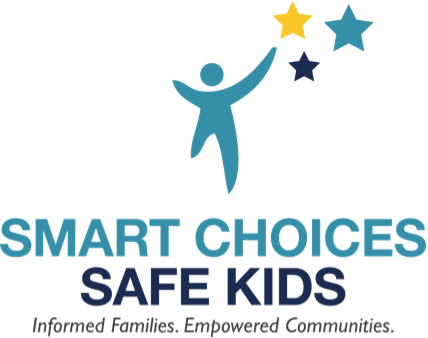Life with Teens
As teens begin to make their own choices and become more independent, your influence is critical in helping them develop good judgement, build healthy relationships, and prepare for adulthood. Here are a few tips to parent teens around these challenging issues.
Overview
+ CARING FOR TEENS RESPONSIBLY
Make sure that anyone who is responsible for your teen is engaged with them, providing developmentally appropriate care and supervision, and is prepared to respond effectively in any crisis.
If you are going to have your teen supervise other children, consider their maturity level to be sure that they are prepared for the responsibility. Make sure they know how to respond appropriately in any crisis.
+ CARING FOR TEENS & SUBSTANCE USE
If you use alcohol, marijuana, or prescription medication, ensure your teen always has a safe and responsible caregiver. A person may be too drunk, high, or medicated to be able to safely care for and supervise teens, or respond effectively in a crisis.
Engaging in illegal activities, using street drugs, or abusing legal substances puts your teen at additional risk.
Set a Good Example: Ensure moderation and responsibility when drinking, smoking, medicating – teens and young adults model parents behavior. Educate your kids on living a healthy lifestyle.
Stay Updated – Educate yourself on the latest facts about substances, consequences of use, and other difficult subjects. Ensure your teen has access to resources to do their own research.
Substances & Driving: Do not drive while impaired and do not let your teen ride in a car with anyone who is impaired. Alcohol, drugs, medication, sleep deprivation, and medical issues can all impair one’s ability to drive safely.
Teen Driving Safety - Talk to your teens about driving while impaired or riding in a car with someone that is impaired, and help your teen establish a plan about how to handle this situation. Talk to your teens about wearing their seatbelt and avoiding distracted driving – and set a good example.
+ COMMUNICATION WITH TEENS
Know Your Teen
Know who your teen is spending time with – at school, during extra-curricular activities, with friends, and online. Make an effort to know other adults involved in your teen’s life.
Identify changes in your teens activities and be aware of high risk behaviors. If something concerns you, it’s a good opportunity to start a conversation or ask for help.
Have “The Conversation”
Don’t be afraid to to talk to your teens about difficult subjects – substance use, interpersonal relationships, sexual exploration, online activity, bullying, body awareness and safety.
Be an Askable Parent
Make sure you’re open and available for your teens when they are ready to talk or ask questions. Watch for teachable moments.
+ Other TIPS FOR RAISING HEALTHY TEENS
Show Your Love
Love and nurturing is a critical part of bonding and brain development. Take a little extra time every day to connect and engage with your teen -talk, listen, be present, smile and love.
Stay Up to Date on Parenting & Child Development
Parenting is part natural and part learned. Talk to friends, family, health care provider, and your teen about their growth and development. Learn about what is expected for your teen as they get older and how to best raise a healthy teen. Learn more about teen brain development and the impact of substance use on the teen brain.
Teach Safety
Teach your teen about general safety, hazards, and things to avoid in your home and when they are at school, religious and extra-curricular activities, as well as in friends’, relatives’, and neighbors’ homes. Make sure teens know how to call for help and what to do in case of a fire or other emergency.
+ SELF-CARE & SUPPORT
Take Care of Yourself
Reenergize yourself, whatever that means to you! Walk, dance, laugh, exercise, take a bath, read, share your feelings, or spend time with friends and family.
Build a Support System
Surround yourself with people that help out and provide emotional support on a daily basis and in times of need. Join a playgroup, support group or faith community; get involved in your neighborhood, community, or school.
Ask for Help
Find out what help is available to meet your family’s needs and don’t be afraid to reach out – every parent needs a little help sometimes.
+ Information & Resources
American Academy of Pedriatrics - Information and advice about raising teenagers.
ChildWelfare.gov - A "Leaving Your Child Home Alone" factsheet for parents.
Children’s Hospital Colorado - Tips for talking to your teens about marijuana.
Safe Kids Worldwide - Safety advice for raising teenagers.
Call 1-800-CHILDREN (244-5373) or 1-866-LAS-FAMILIAS (527-3264) for free, confidential help finding drug treatment, parenting support, medical care, social and family service agencies, and many other resources. Learn more.
Related Topics
Substance Use & Teens
Click on a substance to learn more.

